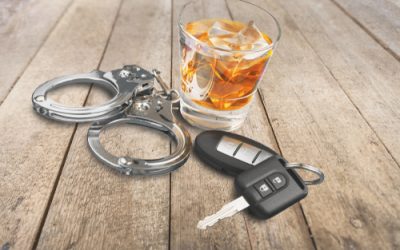A prescription medication DUI occurs when a driver becomes impaired due to the effects of the prescription drugs. The impairment could happen before the driver gets in the car or it may become an issue as the medication starts to work during the drive. Despite the fact that a doctor prescribed the legal medication, if the driver consumes a substance that had a “substantial effect” on them, the driver will be deemed “under the influence”.
To be considered a DUI, the prescription medication would have to have a substantial influence on the driver’s capability to safely maneuver a vehicle. All substances that can have an intoxicating effect on a driver are included in the DUI impairment law, which means that the impairment could be caused by alcohol or because of a physician’s prescription medication.
Even when taking the prescribed amount, numerous prescription medications and medicines that are available over-the-counter can negatively impact your motor skills and coordination. The following medication side effects can hinder a driver’s ability:
- Nausea
- Dizziness
- Blurred vision
- Drowsiness
- Inability to pay attention or to concentrate
- Fainting
- Slowed movement
However, different medications can impact people in different manners. Prescription drugs that impair attentiveness, motor skills, focus, and judgment can be as hazardous as alcohol. Any of the previous signs of impairment can cause reduced reaction time, dangerous driving, or even an accident.
Ambien Sleeping Pill DUI
Getting arrested for a DUI after taking an Ambien sleeping pill can and does occur. Ambien is intended for people to take before bed to help them sleep through the night. If Ambien is taken before driving, the driver should expect the possibility of being pulled over for an Ambien sleeping pill DUI arrest as drivers need to be alert when they get behind the wheel.
However, sometimes ‘sleep driving’ can happen after taking Ambien. The FDA has labeled sleep driving as when a person operates a vehicle while partially asleep after taking a sedative-hypnotic product.
Sometimes, people have little consciousness of sleep driving as certain situations have found people to take Ambien, fall asleep, wake up again, and get up once more while they are still asleep to drive their car.
DUI Charges from Other Sedative-Hypnotic Sleeping Medications
Any medication that is classified as a sedative-hypnotic is known to cause sleepwalking and occasionally sleep driving. These medications are intended for sleep and are prescribed on a regular basis.
The DUI of sleeping pills charge can be given after a driver operates a motor vehicle after taking any of the following sedative-hypnotic sleeping medications:
- Ambien;
- Butisol sodium;
- Carbrital;
- Dalmane;
- Doral;
- Halcion;
- Lunesta;
- Placidyl;
- Prosom;
- Restoril;
- Rozerem;
- Seconal; or
- Sonata.
The same DUI penalties are given to a driver when they operate a vehicle after taking any type of sleeping drug.
Gamma-Hydroxybutyric Acid GHB DUI
GHB is a neurotransmitter and leads to euphoria, lowered inhibitions, and relaxation. It’s used legally as a prescription, illegally for recreational use as a party drug, and illegally as a way to conduct sexual assault.
Inappropriate consumption of GHB can result in hazardous and impaired driving abilities. It’s important to measure how much of the medication is being consumed, and if too much is taken too quickly a person can pass out, become less alert, or lose their focus.
People who were not aware that the drug was slipped into their drink might feel like they are capable of driving, but the effects may suddenly become problematic after the vehicle is in motion. Another cause for concern is that GHB can potentially have a fatal outcome if it is taken with other drugs or alcohol.
What Is the Procedure for a DUI Charge If GHB Wasn’t Taken Intentionally?
Individuals who have been targeted for sexual assault are victims and should not be sentenced as a criminal. Legally speaking though, a person can be arrested for DUI if they were operating a motor vehicle during a time when they were impaired.
It will be necessary to determine if other substances were involved before driving; if the driver felt the impairment before choosing to drive; and whether or not any witnesses were around to see someone slipping a drug into a drink.
Which Prescription Medications Affect Driving?
Medications have warnings regarding potential side effects like risks of drowsiness and driving, but these warnings do not always specify how the drug could interact with other medications. Side effects can be different when two or more medications are combined.
Not all medications affect your driving, though. The most common classes of medications that are associated with DUI include:
- Antidepressants
- Antihistamines
- Anxiety medication
- Blood pressure medication
- Cough medication
- Decongestants
- Narcotic pain medicine
- Prescription pain relievers
- Sleep medication
- Stimulants
- Tranquilizers
If a person gets behind the wheel after taking any of the previous medications and their driving ability is hindered, the driver may face a DUI.
What Can I Do If I Need to Drive and Am Taking Prescription Medications?
Prescription medications should never be taken without a doctor’s permission, and your physician, as well as your pharmacist, can give you advice that will not include putting you behind the wheel while impaired. It is especially important to have specific directions for new medications that you haven’t taken previously.
Fill your physician in honestly regarding all of the medications that you are taking, and what times of the day you need to be driving. Your doctor may adjust the kind of medication or the dose but will find a safe solution.






